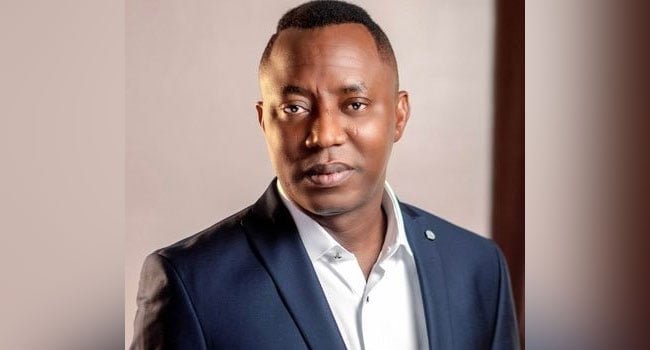The Socio-Economic Rights and Accountability Project (SERAP) and Amnesty International (AI) have asked President Bola Tinubu to drop the charge filed against Omoyele Sowore, X, and Facebook.
In a joint letter dated September 20, 2025, the groups said Nigeria’s security agencies were turning courtrooms into tools of harassment. They warned that such tactics were poisoning civic space and scaring citizens into silence.
They described the charges filed by the Department of State Services (DSS) as Strategic Lawsuits Against Public Participation (SLAPPs) — a legal tactic often used to punish critics.
“The use of SLAPPs generates a chilling effect that inhibits the enjoyment of human rights and the circulation of ideas and information,” the organisations wrote.
Call for Anti-SLAPP Law
SERAP and AI urged Tinubu to direct Attorney General Lateef Fagbemi (SAN) to withdraw the charges immediately. They also asked for a new anti-SLAPP law to stop future misuse of the justice system.
They argued that such a move would protect Nigerians’ freedom of expression, which they called the “cornerstone of democracy.” Public officials, they said, must accept wider criticism because of their positions.
The case against Sowore includes five counts under the Cybercrime (Amendment) Act 2024 and the Criminal Code Act. It was filed after Sowore refused to delete posts critical of Tinubu.
“Freedom of expression is a fundamental human right and full enjoyment of this right is central to achieving individual freedom and developing democracy,” the letter stressed.
History of Targeted Cases
The groups reminded Tinubu that Sowore has been targeted before. They also recalled a similar DSS-backed case in May 2025 against Professor Pat Utomi, who was accused of attempting to usurp power by forming a shadow government.
According to SERAP and AI, these suits show a worrying trend of using courts to stifle dissent.
They gave the government seven days to act, warning they would take the matter to the ECOWAS Court of Justice if nothing changed.
International Human Rights Standards
Quoting rulings from Nigerian and African courts, the groups said politicians must tolerate greater scrutiny than ordinary citizens. They noted that regional courts had rejected defamation as a weapon against free speech.
The organisations also cited the UN Human Rights Committee’s General Comment No. 34.
“The mere fact that forms of expression are considered insulting to a public figure is insufficient to justify penalties,” the Committee wrote.
It further stated that “all public figures, including those exercising the highest political authority such as heads of state, are legitimately subject to criticism.”
The UN body has also called for the decriminalisation of defamation, arguing that criminal penalties are disproportionate and dangerous for democracy.
Should Nigeria follow this call and pass an anti-SLAPP law? What do you think?
Rate, Like 👍, Comment💬, share this article and Follow us on our social media handles. You can also Submit your own story to get featured and earn rewards!







